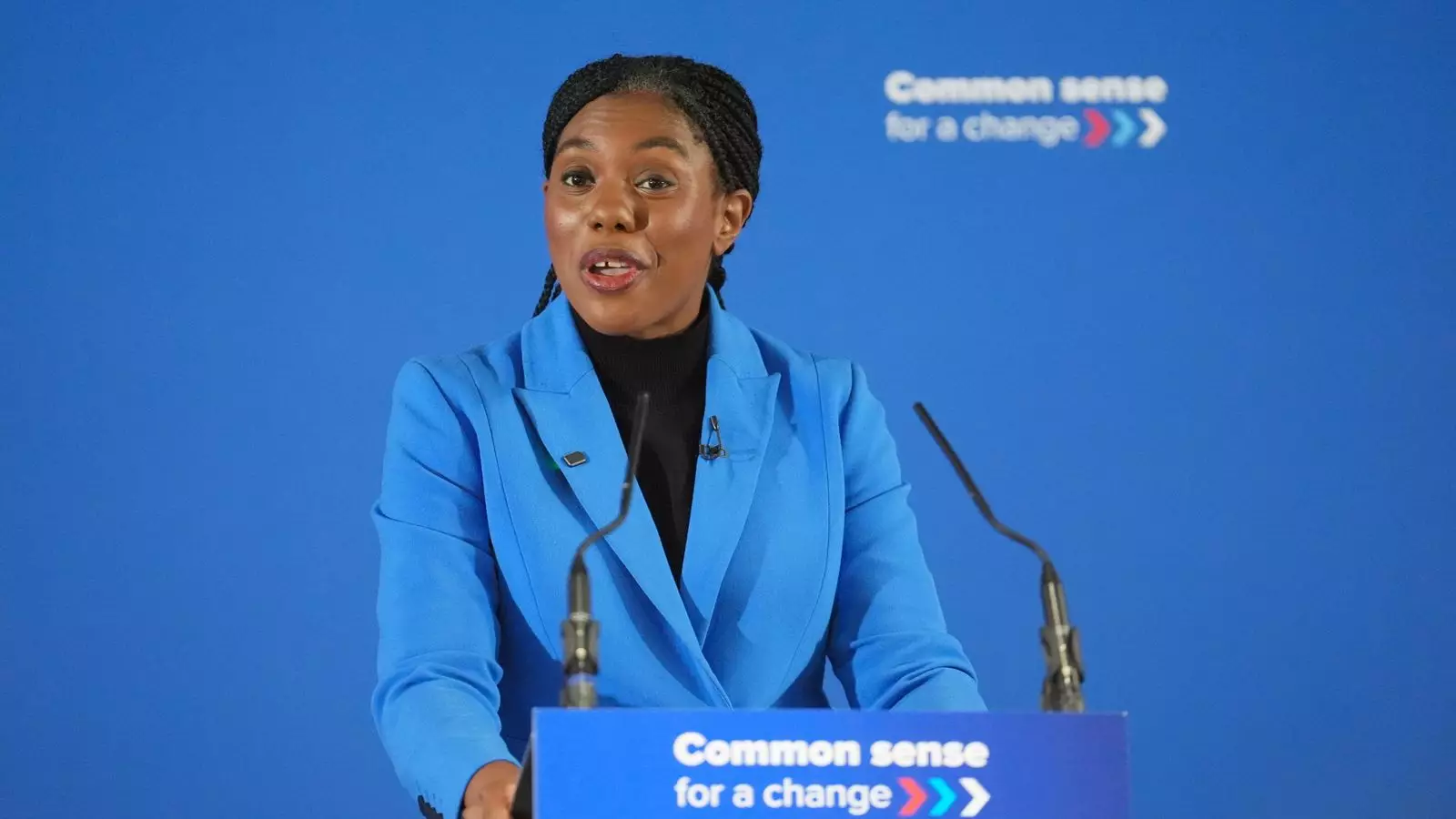The current political stage in the UK is one of confusing narratives and deeply entrenched ideologies, crystallized by the recent developments concerning welfare reform. Kemi Badenoch’s overtures aimed at rallying Conservative support for modifications to a controversial welfare bill have sparked dissent within the Labour ranks. With the stark prospect of over 100 Labour MPs actively rebelling against these welfare changes, the complexity of coalition-building reveals an embarrassing vulnerability at the heart of British politics. Badenoch’s conditional support raises eyebrows and questions the integrity of any government’s commitment to social justice and equitable distribution of resources. This reshuffling of allegiances underlines a desperate attempt to hold onto power amid public outcry and political strife.
The Welfare Budget Dilemma
Kemi Badenoch’s insistence that Sir Keir Starmer commit to reducing the welfare budget, emphasizing employment over support, signals an alarming shift in the political rhetoric surrounding welfare reform. This framing reduces the intricate nature of poverty and disability to mere budget lines that must be slashed in the name of fiscal prudence. What’s often overlooked is that the welfare system is not merely a numbers game but a crucial safety net for the most vulnerable people in society. By invoking the specter of high welfare spending, Badenoch and her Conservative companions divert attention from the integral role that support systems play in enabling individuals to reintegrate into the workforce—if they ever had the opportunity to do so, to begin with.
The requirements laid out by Badenoch—to cut welfare, stimulate employment, and avoid tax increases—reflect a mentality that prioritizes economic ideology over humanity. While the call for a well-balanced budget is commendable, the casualties of such a fiscal strategy are tangible and heartbreaking. The narrative suggests a harsh dichotomy: either one prioritizes economic efficiency or the welfare of those in need, which is an utterly false choice. The onus is on political leaders to devise policies that serve both the economy and the populace—yet, unfortunately, that seems to be lost in translation.
Labour’s Internal Strife
Within this contentious atmosphere, Labour MPs are voicing legitimate concerns about the potential ramifications of these welfare changes, particularly those that could plunge 370,000 current claimants of Personal Independence Payment (PIP) into poverty. Mayor Sadiq Khan’s impassioned plea for a “rethink” aptly highlights the gravity of these proposed cuts, which threaten not just financial stability, but the very essence of a humane society. The Labour leader’s rhetoric of reform—asserting that the welfare system must evolve—should be critiqued not only for its tone but also for its execution. The language of reform can serve as a convenient euphemism for cuts, particularly when the consultation process was only superficially engaged.
While there is a strong assertion from Labour that they are attempting to fix the failures of a “broken welfare system,” the question arises: is this system genuinely being reformed for the better, or are we witnessing an attempt to mask austerity measures with the guise of reform? The reality might be that any coalition with the Conservatives—essentially a lifeline to implement draconian cuts—could severely undermine Labour’s credibility as an advocate for social justice.
Coalition Logic in Politics
The notion that a government must rely on the votes of their political rival to secure crucial legislation epitomizes a desperate strategy that lacks foresight. MP Neil Duncan-Jordan’s commentary on the undesirable optics of relying on Conservative votes encapsulates the troubling reality that Labour may find itself contorting its policies to align with an agenda that fundamentally opposes its principles. This coalition logic, born out of a need for immediate legislative approval, risks fracturing the party’s commitment to its traditional values of equity and fairness.
In contrast to this disarray, one cannot help but admire the sheer audacity of the current government. They appear undeterred amidst growing dissent and a rebellious faction, asserting their planned reforms with a boxer’s tenacity. Nevertheless, the clamor of discontented constituents is a stark reminder that, beyond political maneuvering, real people with real struggles are the collateral damage in this game of chess.
The stakes could not be higher. In a society where political vulnerability breeds apathy, every decision made impacts lives, livelihoods, and the moral fabric of our nation. The race for welfare reform should not just be a financial exercise but a critical re-evaluation of how we value each member of our society.


Leave a Reply